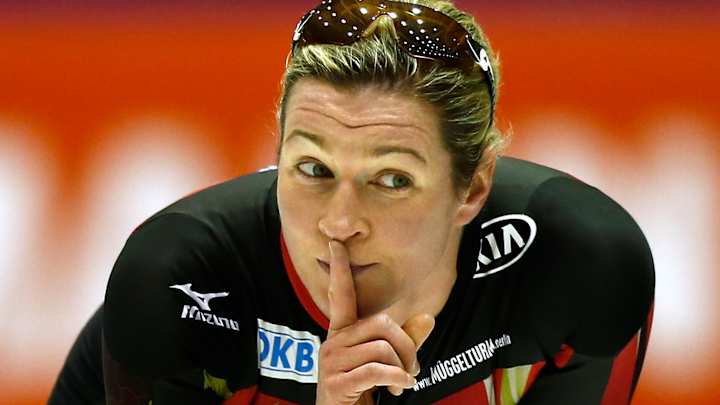German federal court rules against speedskater Pechstein

FRANKFURT, Germany (AP) The highest court in international sports won a major legal victory Tuesday when a German court rejected five-time Olympic speedskating champion Claudio Pechstein's claim for damages in a doping case that had threatened to topple the established Olympic legal system.
The German federal court ruled that sports justice was not biased against individual athletes, handing a stinging defeat to Pechstein in her long dispute with skating's world governing body over a doping ban.
The ruling upheld the role of the Court of Arbitration for Sport, which could have lost its authority if the decision had gone in Pechstein's favor.
A victory for Pechstein would have encouraged athletes around the world to bypass the established system of sports justice and pursue cases in local courts where their popularity could weigh in their favor.
''Every refugee that enters Germany and gets registered enjoys legal protection, but we athletes don't,'' Pechstein said after the ruling.
Her lawyer said Pechstein would appeal to the national constitutional court.
The International Skating Union banned Pechstein in 2009 for two years on the basis of suspicious blood tests. She never failed a drug test and has insisted she has an inherited blood condition.
The ruling by Germany's highest civil court in Karlsruhe prevents her from seeking 4.4 million euros ($5 million) in compensation from the ISU.
The federal court was acting on an appeal by the ISU against a Munich court's decision that Pechstein had the right to go to a national court and not only to CAS, which is based in the Olympic home city of Lausanne, Switzerland.
''We are deeply disappointed. It wasn't the last word,'' Pechstein's lawyer, Thomas Summerer, said.
One central issue of the case was whether the athlete was forced to give up her legal rights by signing an agreement that made CAS the sole court of arbitration.
Pechstein, Germany's most decorated Winter Olympic athlete, argued that the ISU abused its monopoly to enforce a legal requirement that favors the sports associations over athletes.
The German judges said that even though the ISU was a monopoly, the way CAS was set up meant that athletes get a fair hearing, especially as they can appeal to the Swiss courts.
''This is the confirmation that Claudia Pechstein had a fair trial, not only before the CAS but also before (Switzerland's supreme court),'' CAS said in a statement, referring to a Swiss federal decision in 2010.
The ruling said Pechstein has no right to seek redress from German courts.
''The plaintiff signed the arbitration agreement of her own free will. The fact that she was required by others to do so, or else she wouldn't have been able to compete, doesn't invalidate the agreement,'' the court said in its ruling.
Pechstein called that part of the ruling a ''farce,'' saying it was common knowledge that athletes who don't sign the agreement are not allowed to compete internationally.
The core of Pechstein's case was that CAS was biased in favor of sports authorities such as the International Olympic Committee and governing bodies, and against athletes and individuals who are obliged to respect the court's authority.
Pechstein, now 44 and still competing, missed the 2010 Vancouver Olympics. She returned for her sixth Olympics at the 2014 Sochi Games, but, for the first time, failed to win a medal.
Pechstein also lost a subsequent appeal at Switzerland's federal court, which can overturn CAS verdicts if legal process was abused.
Judge Bettina Limperg, in reading the verdict, called CAS ''independent and impartial,'' a ''real'' arbitration tribunal that provides advantages not only for federations but also for athletes through ''uniform standards and speedy decisions.''
ISU lawyer Christian Keidel said he expected Pechstein to continue the legal battle.
FIFPro, the world group of soccer players' unions which paid some of Pechstein's legal costs, called on CAS to ''work with player and athlete unions to ensure a proper structural representation and absolute impartiality of its tribunals and administrations.''
The German Olympic Committee welcomed the verdict because it affirmed the role of CAS. But it also noted that the ruling had nothing to do with whether Pechstein's doping ban had been justified or not, and said it regretted that she failed in her attempt to get compensation.
---
AP Sports Writer Graham Dunbar in Geneva contributed.
